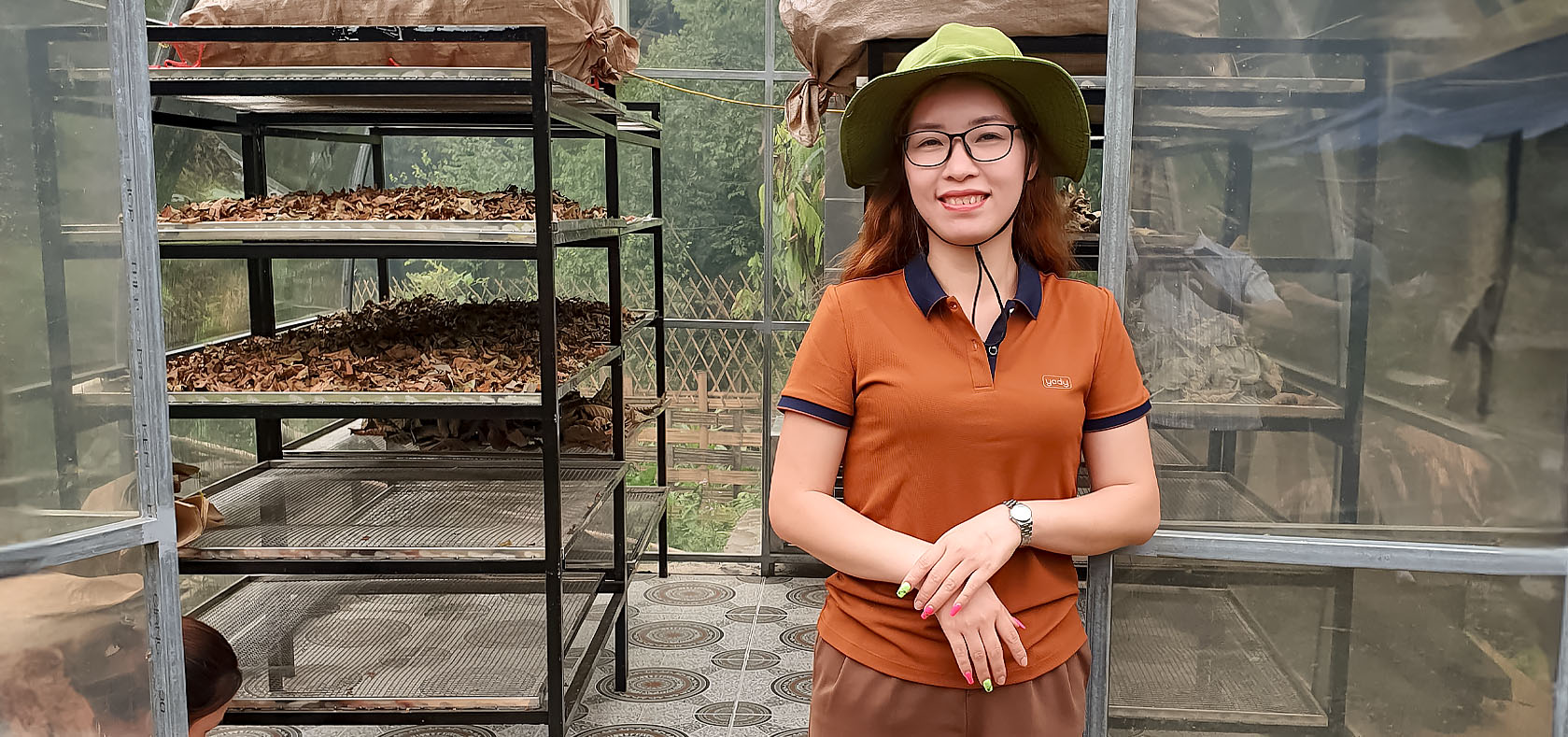Women’s Renewable Energy Entrepreneurship Towards a Gender-Just Energy Transition in Viet Nam
Date:
Author: Vera Pokorny

Women have long been resourceful managers of energy in past traditional roles. Now there is a growing recognition of the crucial role women play in driving sustainable solutions for environmental challenges, including the adoption of renewable energy alternatives through small-scale businesses. However, there are many barriers to women’s active participation in the energy sector and as well as entrepreneurship in general
This holds true in Viet Nam as elsewhere – where women entrepreneurs face numerous obstacles, from limited access to financing, lack of information or negative societal pressure. This may explain why women-owned enterprises account for only 26.5 per cent of enterprises in the country, according to a UN report, with most of those small and micro-sized enterprises concentrated in service industries.
“When I first established my cooperative, there was no one to support me as Director. I had to manage everything by myself,” says Ms. Duong Khanh Ly, 33, a woman of the Dao minority and founder of the Nghia Ta Agricultural and Forestry Cooperative. "It was difficult to get capital for the co-op. And I did not have the skills to manage sales or introduce products in e-commerce.”
Despite initial challenges, Ly persisted. In 2021, she founded her own cooperative, which specializes in the production of dried yellow flower tea and dried leaf tea, located in Nghia Ta commune in Viet Nam’s northeastern Bắc Kạn province. In addition to their concerns, this is a region projected to experience significant changes in temperature and rainfall patterns due to climate change.
These changes are already being felt by communities such as Ly’s, and are having a profound impact on livelihoods. As Ly recounts, in recent years, her village has experienced flash floods, which have dampened agricultural production. The unpredictable precipitation patterns also make sun-drying of the leaves more difficult.
In December 2021, Ly stumbled across an agricultural business like hers on Facebook and saw that it was applying renewable energy technology, financed through a loan. Convinced by the business model and the look of the products, Ly proposed the idea to the members of her cooperative. When her family learned about it, they voiced their concerns about women’s ability to use such advanced technology and whether Ly would be able to repay the loan. Even though the women had previously never heard about renewable energy, they decided collectively that they wanted to try it for themselves.
A month later, the cooperative began receiving support from EmPower: Women for Climate-Resilient Societies programme (EmPower). The programme is jointly implemented by the UN Environment Programme (UNEP) and UN Women and funded by the Swedish Government. EmPower seeks to break barriers that women and other marginalized groups face in accessing services, resources and equal opportunities to build climate resilience. To rectify the fact that women and other marginalized groups experience the greatest impact of climate change, the programme works to harness the low-carbon transition to address gender inequalities and advance human rights in the context of climate change.
For over five years, EmPower has facilitated women’s access to training and affordable loans to expand or start their businesses, using renewable energy in Viet Nam, Bangladesh and Cambodia. So far the programme has supported 473 women, contributing to building their resilience to climate change and disasters and enabling them to become economically empowered. With the start of its second phase in 2023, the programme aims to go even further. By applying the lessons from the first phase and scaling up its efforts, EmPower aims to reach hundreds more women and marginalized communities, which will contribute to a more equal distribution of the benefits of the energy transition.
Through the support of EmPower and local partner CHIASE, Ly was able to access loans at a preferential rate, which she used to buy raw materials for her business. Simultaneously, she received training in production and business planning as well as in online sales and marketing. She also began applying the new drying technologies to improve the quality of her product, switching to a solar-powered drying facility. With the help of this technology, the cooperative was able to adapt to the shifts in weather patterns and is contributing to more sustainable practices.
Another aspect that makes this cooperative unique, is that it is made up entirely of women who are members of the Dao and Tay Ethnic minorities. Ly started the business with the intention of hiring women from these communities so that they could earn their own income and improve their status within their families and the community. “I left the previous co-op where I worked because I wanted to create jobs for women,” Ly explains. Today, the cooperative has 15 members and is growing tea in an area totaling 6 hectares, planning to expand soon.
If Ly had one piece of advice to give to other women thinking about starting their own business, it would be to follow global trends such as renewable energy. She adds that “they should be brave and dare to take some risks.”
Vera Pokorny is a Gender and Climate Change Outreach Specialist (Consultant) at the UN Environment Programme
About EmPower
The EmPower: Women for Climate Resilient Societies programme is a joint initiative between the UN Environment Programme (UNEP) and UN Women. Since it started in 2018, it has pioneered innovative solutions contributing to climate change adaptation and mitigation in Bangladesh, Cambodia, and Viet Nam and across Asia and the Pacific. To accomplish this, it has placed community leaders, women and SMEs at the centre of solutions to support a gender-just energy transition.